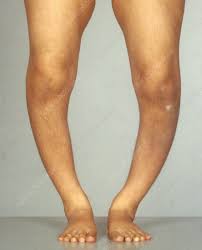⚠️ Affiliate Disclaimer
This post may contain affiliate links, which means I may earn a small commission — at no extra cost to you — if you make a purchase through one of these links. I only recommend products or services I genuinely trust and believe can provide value. Thank you for supporting My Medical Muse!

Can Vitamin Deficiency Make You Feel Tired All the Time?
You sleep 8 hours, you eat regularly, you even cut back on caffeine. So why do you still feel completely exhausted during the day? While there are many causes of persistent fatigue, one commonly overlooked reason is a vitamin deficiency. These tiny but powerful nutrients play massive roles in how your body produces energy, fights stress, and repairs itself. When you’re even slightly deficient, it can set off a domino effect that leaves you feeling drained physically, mentally, and emotionally.
Vitamins, often classified as micronutrients, are one of the major classes of essential nutrients that keep your body running at full capacity, although needed only in small amounts, their absence can trigger a cascade of biological dysfunctions, affecting multiple systems at once.
Vitamins act as co-factors for enzymatic reactions, perform antioxidant functions, and help the body combat inflammation and premature aging. Some are involved in blood clotting for example, a deficiency in vitamin K could prevent wounds from healing properly, turning a minor cut into a life-threatening issue due to uncontrolled bleeding, others support good vision, nerve health, and hemoglobin production, among many other critical processes.
Vitamin deficiencies are surprisingly common, partly because some essential vitamins aren’t stored in the body and rely on daily dietary intake. Broadly, vitamins are divided into two categories:
Fat-soluble vitamins: These are stored in the body’s fat tissues and include vitamins A, D, E, and K.
Water-soluble vitamins: These are not stored in the body and must be replenished daily through diet. This group includes vitamin C and all the B-complex vitamins.
So how exactly do these deficiencies make you feel tired and which ones should you be most concerned about?
1. Vitamin B12 Deficiency:
Is a Common Cause of Fatigue, vitamin B12, part of the B-complex family, is one of the most essential nutrients your body needs and when it’s missing, your body lets you know.
B12 plays a critical role in DNA synthesis and the production of red blood cells. Without enough of it, your body struggles to make healthy red blood cells, which are responsible for carrying oxygen throughout your body. This can lead to conditions like megaloblastic anemia and pernicious anemia, both of which result in low blood levels and symptoms such as fatigue, weakness, pale skin, and shortness of breath or in simple terms, less oxygen to your tissues meaning less energy and more tiredness.
Vitamin B12 deficiency is more common than most people think because it’s a water-soluble vitamin. It isn’t stored in the body in large amounts, this means you need to get a steady supply through your diet. The catch? B12 is found almost exclusively in animal-based foods like meat, fish, eggs, and dairy.
As a result, vegetarians and vegans are at a higher risk of deficiency. If you follow a plant-based diet, it’s often recommended to take a B12 supplement or use fortified foods to meet your daily needs. we recommend this supplement
📌 Pro Tip: If you constantly feel drained, check your vitamin B12 levels, especially if you follow a restrictive diet.
➡️Also read: 15 Hidden Reasons You Feel “Wired but Tired” at Night and How to Fix It
2. Vitamin D Deficiency and Fatigue

Vitamin D is often called the “sunshine vitamin” but there’s a common misconception. Many people believe the sun directly provides vitamin D, in reality, it’s your skin that produces vitamin D but only when exposed to the UVB rays from sunlight. These UVB rays trigger the synthesis of vitamin D in the deeper layers of the skin, making sunlight an important activation factor, not the vitamin itself.
Vitamin D can also be obtained through certain foods (like fatty fish, egg yolks, and fortified dairy) and supplements. It’s a fat-soluble vitamin, which means the body stores it in fat tissue for later use because of this, many assume deficiency is rare but it’s more common than expected.
Surprisingly, vitamin D deficiency is widespread, even in sun-rich regions like Africa, this is due to several factors: Darker skin tones (higher melanin) reduce UVB penetration, slowing vitamin D production.
People who spend most of their time indoors or wear covering clothing outdoors miss out on sun exposure. Sedentary lifestyles further limit time spent outside.
So how does vitamin D relate to fatigue?
 Vitamin D plays a key role in bone health, immune function, and muscle strength. Deficiency can lead to weakened bones, increased inflammation, and low energy levels. In children, severe deficiency causes rickets, while adults may experience bone pain, frequent illness, and persistent tiredness. Some studies also suggest a potential link between low vitamin D levels and conditions like fibroids in women and chronic fatigue syndrome, though more research is ongoing.
Vitamin D plays a key role in bone health, immune function, and muscle strength. Deficiency can lead to weakened bones, increased inflammation, and low energy levels. In children, severe deficiency causes rickets, while adults may experience bone pain, frequent illness, and persistent tiredness. Some studies also suggest a potential link between low vitamin D levels and conditions like fibroids in women and chronic fatigue syndrome, though more research is ongoing.
💡 Tip: If you feel tired all the time and avoid the sun or have darker skin, checking your vitamin D level might reveal more than you think.
3. Vitamin B6
Another key member of the B-complex family, plays a vital role in keeping your nervous system healthy. It helps regulate the transmission of electrical impulses between the brain and various parts of the body. When B6 levels drop, those signals slow down or misfire and the result is often fatigue, brain fog, and nerve-related symptoms because vitamin B6 is water-soluble, the body doesn’t store it in large amounts, this means a regular intake through diet is essential.
Deficiency can result from:
- Poor dietary intake
- Chronic alcohol consumption
- Certain medical conditions, like Wernicke’s encephalopathy, a brain disorder caused by severe vitamin B deficiencies.
The most common symptoms of B6 deficiency include:
- Persistent fatigue
- Numbness or tingling (neuropathy)
- Irritability or confusion
- In severe cases: seizures and convulsions
Fatigue related to vitamin B6 deficiency happens because the nerves aren’t communicating effectively, slowing down mental and physical response. Over time, this leads to a sense of sluggishness or even burnout.
Good sources of vitamin B6 include bananas, poultry, fish, potatoes, and fortified cereals. If you’re at risk, such as if you drink heavily, take certain medications, or follow a restrictive diet, you may need to supplement under a doctor’s supervision.
Tip: If you experience unusual nerve sensations or constant tiredness, a simple blood test could confirm whether B6 deficiency is to blame.
Also Read : Early Signs of Vitamin D Deficiency You Might be Ignoring
Other Vitamin Deficiencies Worth Mentioning
While vitamin B12, D, and B6 are among the most common culprits behind fatigue, there are several other vitamins whose deficiencies can also impact your energy levels and overall wellbeing:
1. Vitamin B9 (Folate)
Folate is essential for red blood cell formation and DNA repair, much like vitamin B12. A deficiency can lead to megaloblastic anemia, which reduces oxygen delivery in the body and contributes to chronic tiredness, especially in pregnant women or individuals with poor diets.
2. Vitamin C
 Well known for its role in immune function, vitamin C also supports iron absorption. When deficient, it can indirectly cause fatigue due to iron deficiency, particularly in people who don’t eat much red meat. It’s also involved in collagen synthesis, which supports tissue repair and energy metabolism.
Well known for its role in immune function, vitamin C also supports iron absorption. When deficient, it can indirectly cause fatigue due to iron deficiency, particularly in people who don’t eat much red meat. It’s also involved in collagen synthesis, which supports tissue repair and energy metabolism.
3. Vitamin E
As a powerful antioxidant, vitamin E helps combat oxidative stress and supports immune and muscle function. Severe deficiency is rare, but when it occurs, it can lead to muscle weakness, coordination problems, and fatigue. While these deficiencies may not be as common or immediately obvious, they still affect the body’s ability to perform at its best. Maintaining a balanced, nutrient-rich diet is key to avoiding hidden causes of low energy.
💡 Tip: A basic blood test and diet review can often uncover deficiencies before they become serious.
How to Diagnose and Fix a Vitamin Deficiency
Now that you understand the major vitamins linked to fatigue and how each deficiency presents, the next step is to evaluate your symptoms and get tested.
Start by noting your most persistent symptoms such as tiredness, brain fog, tingling sensations, or muscle weakness and compare them to the signs associated with various vitamin deficiencies discussed in this post. Once you’ve identified the most likely culprit, visit a nearby medical laboratory or hospital to request a vitamin panel or targeted blood test.
If you’re unsure how to interpret the results, you can book a consultation with a licensed doctor through MuseCare, where our team will:
- Review your lab reports
- Translate complex results into clear language
- Offer personalized health advice
- Recommend the right treatment or supplement plan
Fixing a Vitamin Deficiency
Once a vitamin deficiency has been properly confirmed through blood testing, the primary goal is to restore normal vitamin levels while addressing the underlying cause of the deficiency. Treatment is usually straightforward, but it must be done correctly to avoid complications or recurrence.
The first step is dietary correction, this involves increasing intake of foods naturally rich in the deficient vitamin. Whole, minimally processed foods should form the foundation of recovery. For example, animal proteins and fortified foods are important for vitamin B deficiencies, while fatty fish, egg yolks, and fortified dairy products support vitamin D levels. A balanced diet not only replenishes vitamins but also improves overall nutrient absorption and metabolic efficiency.
In many cases, targeted supplementation is necessary, especially when deficiencies are moderate to severe or when dietary intake alone is insufficient. Supplements may be prescribed by a clinician or obtained over the counter, depending on the vitamin involved and the severity of the deficiency. Dosage, formulation, and duration should always be individualized. For certain conditions such as malabsorption syndromes, chronic gastrointestinal disease, or post-surgical states, higher doses or injectable forms may be required.
Lifestyle modifications also play a critical role in correcting and preventing deficiencies. Adequate sun exposure supports vitamin D synthesis, while reducing alcohol intake improves absorption of several vitamins B. Improving meal diversity, maintaining a regular eating pattern, and addressing chronic stress can significantly enhance nutrient utilization at the cellular level.
Equally important is avoiding behaviors that interfere with vitamin absorption and metabolism. Smoking, heavy alcohol use, and prolonged or unnecessary use of certain medications can impair how the body absorbs and uses vitamins. When these factors are present, correcting the deficiency without addressing the root cause often leads to relapse.
Finally, periodic re-testing is essential to monitor progress and ensure levels return to and remain within a healthy range. Follow-up testing helps determine whether dietary changes and supplementation are effective or if adjustments are needed.
📌 Important Note: Never self-prescribe high-dose vitamin supplements without medical supervision. Fat-soluble vitamins such as A, D, E, and K can accumulate in the body and lead to toxicity if taken excessively. Even water-soluble vitamins can cause harm at very high doses, Proper guidance ensures safe, effective, and lasting correction of vitamin deficiencies.
Conclusion: Don’t Let Hidden Deficiencies Drain Your Life
Feeling tired all the time isn’t just frustrating it’s a sign that your body is trying to tell you something. If you’ve ruled out poor sleep and lifestyle factors, it may be time to consider what’s happening at a deeper level.
Vitamin deficiencies are silent energy killers, and they’re more common than most people think even among those who eat well or live in sunny regions. Fortunately, once identified, they’re often simple to treat through diet, lifestyle changes, and targeted supplements. You don’t have to guess your way through fatigue or live at half-capacity.
Need Help Understanding Your Fatigue?
Book a consultation today with a doctor at MuseCare, and let us help you:
- Interpret your lab results
- Identify potential deficiencies
- Build a personalized recovery plan
- Start feeling like yourself again
Your energy is your power don’t settle for less.
👩⚕️ Need Personalized Health Advice?
Get expert guidance tailored to your unique health concerns through MuseCare Consult. Our licensed doctors are here to help you understand your symptoms, medications, and lab results—confidentially and affordably.
👉 Book a MuseCare Consult NowOther Related post:
- Why Do I Feel Tired Even After Sleeping 8 Hours?
- Early Signs of Vitamin D Deficiency You Might Be Ignoring
- Iron Supplement Side Effects: What You Need to Know Before You Start
- 15 Warning Signs Your Gut Isn’t Absorbing Nutrients Properly (And What to Do About It)
- Sweet Taste in Mouth: Shocking Signs It’s a Vitamin Deficiency
- 10 Surprising Reasons Why Your Tongue Burns or Tingles Randomly
Dr. Ijasusi Bamidele, MBBS (Binzhou Medical University, China), is a medical doctor with 5 years of clinical experience and founder of MyMedicalMuse.com, a subsidiary of Delimann Limited. As a health content writer for audiences in the USA, Canada, and Europe, Dr. Ijasusi helps readers understand complex health conditions, recognize why they have certain symptoms, and apply practical lifestyle modifications to improve well-being


